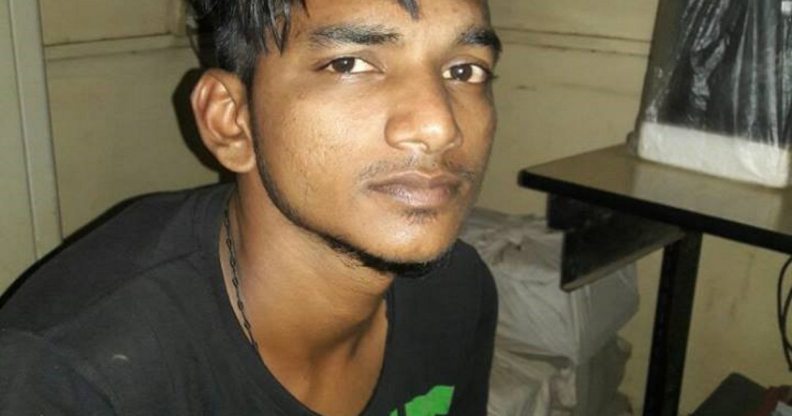Man slit his lover’s neck during sex and stole his cash and gold

(Facebook/Goa Speaks)
A 21-year-old man has confessed to stabbing his lover to death during sex before stealing his money and gold ornaments.
Baptisto D’Costa, 53, was killed in cold blood by Amaan Gopal Kavitiya in Colva, on the west coast of India.
D’Costa, who had a wife, became close with Kavitiya, who was employed as a driver for a construction firm, in October, according to police in Goa.

Amaan Gopal Kavitiya (YouTube/Prudent Media Goa)
The pair, along with two of D’Costa’s employees, would often go out for dinner and drinks.
South Goa SP Arvind Gawas said that despite being married, D’Costa was sexually involved with Kavitiya and another man in the group.
“The deceased would call Kavitiya frequently and invite him over,” the police chief said.
“While initially the deceased would pay, it was when Kavitiya borrowed money from D’Costa, that his demands grew.
“Exasperated, he devised a plan to rid of him,” Gawas added.
On Saturday evening, Kavitiya asked D’Costa to meet him near a church in Colva for a “bout of pleasure,” he said.
“Kavitiya purchased some drinks and chicken dishes before the duo proceeded to Betalbatim beach.
“After a round or two of drinks, the deceased indulged in sexual activities.”

(YouTube/SAL tv)
It was then that the murderer struck, Gawas said.
“Finding D’Costa in a vulnerable position, Kavitiya took out a knife and slit D’Costa’s throat and stabbed him in the neck.
“He died instantly.”
After ensuring his lover was dead, he stole Rs 10,000 (£110) and gold ornaments that were on D’Costa’s person.

(YouTube/SAL tv)
Kavitiya was interrogated for two days, but continually said he had no involvement with D’Costa’s death.
Eventually though, the weight of proof was too much for him to deny.
“It was only when we confronted him with all evidence that pointed to his presence at the spot of the crime at the time of the incident that he admitted to having committed the murder,” Gawas said.
Homosexuality is still illegal in India, though the Supreme Court is set to revisit the colonial-era Section 377 law.

